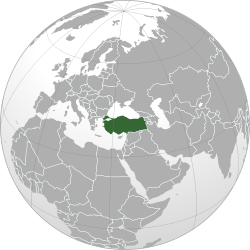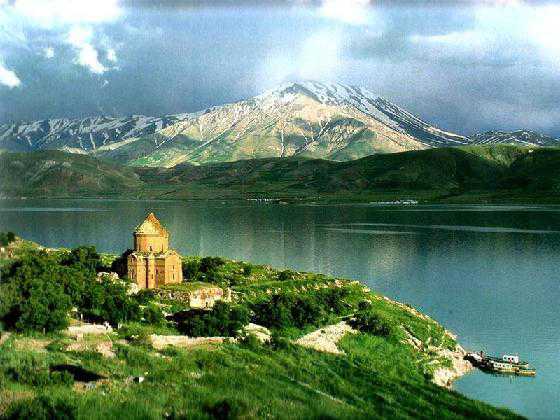Gul Hosts Karzai and Zardari for a Trilateral Summit in Istanbul
Turkey is hosting another major international gathering, marking its growing profile in regional and international diplomacy. Turkish President Abdullah Gul has brought together Afghan President Hamid Karzai and Pakistani President Asif Ali Zardari in a trilateral meeting being held in Istanbul on December 5 (www.cnnturk.com, December 5).
This is the second such trilateral summit that Turkey has arranged. The presidents of Turkey, Afghanistan, and Pakistan met for the first time on April 29 and 30, 2007, in Ankara. At that time the Pakistani and Afghan leaders issued the so-called Ankara Declaration, which underlined their intention to take concrete steps toward regional development and the fight against terrorism. Following the meeting, the parties agreed to form a joint working group to follow up on the conclusions of the summit and maintain the trilateral process (Stratejik Analiz, June 2007; www.asam.org.tr).
Gul extended his invitation for a new meeting to his counterparts during the UN General Assembly in September 2008, and they accepted. After deliberations over the scheduling, the three heads of state finally decided to meet in Istanbul. The main items on the summit agenda are cooperation in security and the economy. The joint working group composed of senior-level officials met the day before to discuss the specific areas set in the first trilateral meeting. Given Turkey’s experience, the parties are expected to reach an agreement to train Afghan and Pakistani officers in Turkey’s anti-drug trafficking and anti-terrorism educational centers. The joint declaration prepared by the working group will be approved by the leaders and made public. Moreover, representatives of the business sector met within the framework of the Istanbul Forum founded by the Union of Chambers and Commodity Exchanges of Turkey (TOBB) with it’s the equivalent bodies from Afghanistan and Pakistan (www.cankaya.gov.tr, December 3; www.cnnturk.com, December 5).
The inclusion of the private sector and economic issues as a separate group reflects Turkey’s recent foreign policy philosophy that a comprehensive solution to political problems can be built on the foundations of strong economic cooperation.
Some Turkish observers nonetheless criticize the fact that the real purpose of such a “trilateral” mechanism has never been clear, and the details of such talks have not been made public (ANKA, December 4). Several bilateral contacts undertaken as part of the wider event are significant. On the sidelines of the summit Karzai and Zardari are holding bilateral talks with each other, and each is meeting separately with Gul.
By initiating this trilateral process, Turkey is seeking to increase trust between the two neighbors through high-level contacts, as well as build an infrastructure for cooperation (www.trt.net.tr, December 5). Turkey’s main asset is its positive bilateral relations with both neighbors and its relatively neutral position toward their bilateral problems. Turkey has traditionally considered Pakistan a sister nation and maintained close ties with Islamabad, despite the occasional changes in each country’s domestic politics. Turkey has had a similar relationship with Afghanistan. It has played an active role in international efforts to rebuild Afghanistan and has supported the central government since the U.S. invasion. Turkey has been part of the NATO-led International Security Assistance Force (ISAF) since its inception.
Moreover, as a Muslim country integrated into Western security architecture, Turkey is in a unique position to facilitate cooperation between these countries and the Western powers. Turkey’s new role from January 2009 as a non-permanent member of the UN Security Council is likely to also augment its leverage in this area.
Turkey’s bilateral meetings with Pakistan and Afghanistan further highlight its attempts to become involved in the current sensitive issues of South Asian diplomacy. Prime Minister Erdogan visited New Delhi in November (EDM, November 25). Sri Lankan President Mahinda Rajapaksa was in Turkey on December 2 as Gul’s official guest, and several bilateral agreements were signed during his stay (www.cankaya.gov.tr, December 3).
Turkey’s activism in the region is particularly welcome to Pakistan. Pakistani sources praised the contribution of past Turkish efforts in “removing misunderstandings and enabling the two countries [Pakistan and Afghanistan] to focus on collaborative measures for bringing stability to the region.” Pakistani foreign office officials also expect the trilateral meeting to contribute to progress and prosperity in the region (Associated Press of Pakistan, December 4; www.thearynews.com, December 4).
Islamabad is also taking advantage of Turkish mediation in other countries. The United States and Afghanistan have criticized Islamabad for failing to fight the Taliban and Al-Qaeda militants in Pakistan’s tribal areas. When U.S. missile strikes and American incursions into Pakistani territory raised tension in the region, Pakistan approached Turkish Prime Minister Recep Tayyip Erdogan to use his county’s influence among NATO members and the United States to stop these military operations (www.dunyabulteni.net, November 3).
After the deadly terror attacks in Mumbai severed relations between India and Pakistan, Erdogan and Turkish Foreign Minister Ali Babacan engaged in extensive telephone diplomacy with Pakistani and Indian officials, contributing to worldwide efforts to ease tension between the two nuclear nations. At his Pakistani counterpart’s request, Erdogan spoke with UN Secretary-General Ban Ki-Moon, Israeli Prime Minister Ehud Olmert, and British Prime Minister Gordon Brown, calling on them to prevent tension between India and Pakistan from escalating. An additional asset here was Turkey’s good relations with India (Zaman, December 1).
Turkey’s role in initiating this trilateral dialogue highlights its new role as a peace-broker in regional disputes. Turkey has successfully asserted itself as a mediator in the talks between Syria and Israel and between the Palestinians and Israel. It has proposed a Caucasus Stability and Cooperation Platform and has offered its services to mediate in the Iranian nuclear issue. This new activism has earned Turkey applause. U.S. President George W. Bush recently called Gul to congratulate him for his country’s efforts in fostering cooperation between the presidents of Afghanistan and Pakistan, as well as Turkey’s constructive role in Iraq (Anadolu Ajansi, December 4).
https://jamestown.org/program/gul-hosts-karzai-and-zardari-for-a-trilateral-summit-in-istanbul/




